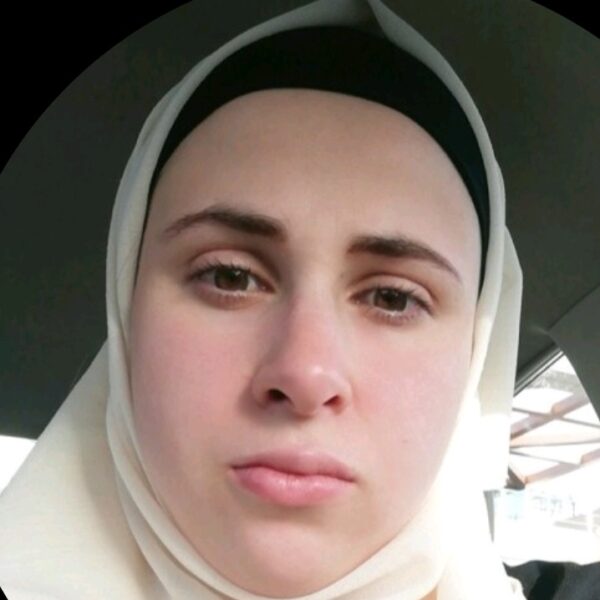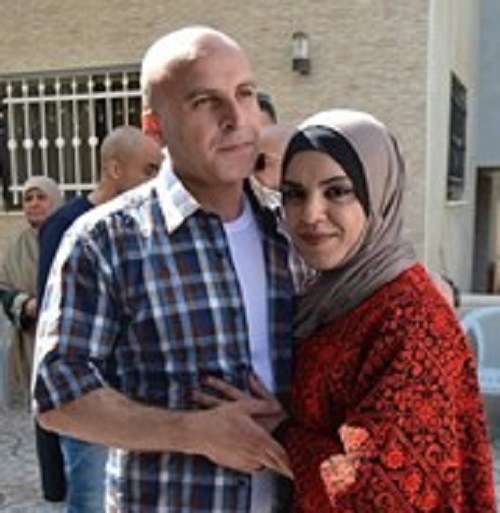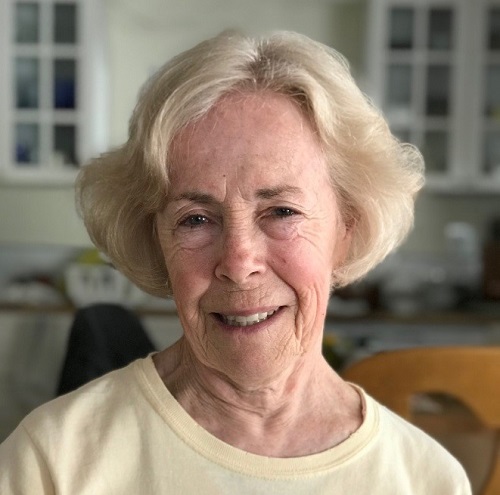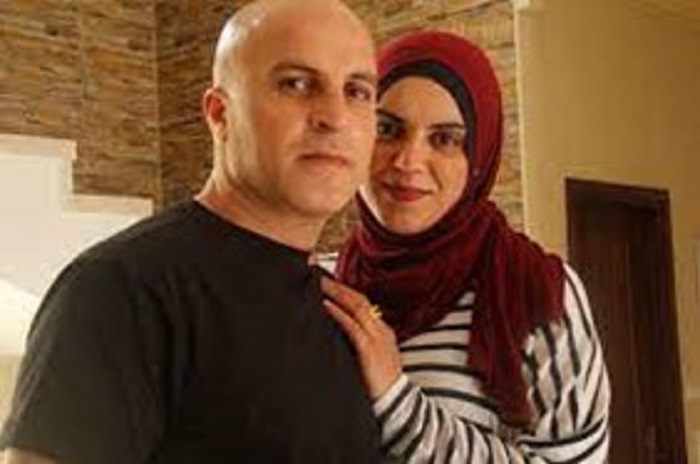
Hadi AlHamshari was arrested by Israeli troops in Tulkarm late in 2003 despite his heroic resistance. They had been trying to capture him since 2000 when the second Palestinian Intifada began. He was accused of opposing Israel because he was an active member of the Fatah movement.
“I spent months under interrogation, and my parents were not informed about where I was or how I was doing,” says Hadi. Eventually, he was given a fast trial and received a sentence of 25 years in jail. His lawyer was able to get the sentence commuted to 16 years in jail. His resistance to the occupation would not be forgiven easily and Israel would make him pay the price.
Hadi was deeply depressed when he knew that a cell would be his grim reality for such a long time. “You can’t imagine how weak and fragile you feel when you realize that you have to spend 16 years away from your life, your dreams, and your loved ones.”
Light sneaked in
However, light sneaked into his isolation to bring new meaning to his life. That happened when he received a letter from Shaza. “I knew a little bit about him from my brothers’ conversations since he was their friend,” Shaza explains. “I liked his personality and his attitude towards his land and his people.”
With her parents’ consent, she tracked his news, wrote him a letter and sent it. “Something inside me pushed me to do this and I don’t know why!”
Her letter lifted Hadi out of the well of despair and gave him new hope. “I was really surprised to receive that letter, especially in such circumstances when I was so disconnected from the outside world.” Hadi’s sadness began to fade as he finished reading her words, and his new life started inside that cell.
Shaza began to check on Hadi by asking his parents about him after their visits to him. He says, “I began to have hope that I would leave prison and start again, so I told my family to announce our engagement.”
For her part, Shaza reports, “I felt so happy and I said yes. I agreed because I loved him. He is someone who was willing to sacrifice everything for the sake of keeping his homeland secure. This made me feel safe and I didn’t want anything else.”
Letters were not enough
She became his fiancée in spite of the long distance and many barriers between them. Their only means of communication was one, three-page letter per month sent through the Red Cross.
“I wrote to him every month, but sometimes it would take three months for my letter to reach him. I wrote to him about freedom and our future,” Shaza says. Some years passed with their only contact being their letters.
She was the lifesaver that revived Hadi’s desperate spirit and made his days worth living. “I would read her letters over and over again during the whole month, and I waited eagerly for her letter to come the next month.”
For Shaza, life outside of jail was also challenging since she had to face her community with this decision. “People criticized me, and I heard a lot of discouraging comments like, ‘You will be old before he leaves the jail!’ and ‘Are you really going to wait for 16 years?’ I didn’t pay attention to them, though, or even hesitate, thanks to my parents’ support. This was my own decision and I was very sure about it.”
When they couldn’t wait any longer to see and meet each other, they decided to get married. “Israel allows only first-rank relatives to visit prisoners,” Shaza explains. “It would require a certificate of marriage to get a permit to visit him. It took one year to finish the process before I was informed that it was done and I could visit Hadi the next day.”
Hadi says, “I kept thinking about what I would say when I met her for the first time. I felt both eager and anxious, and my head was full of thoughts. I asked the jail administration to wear casual clothes, but they insisted on the jail’s uniform.”
The day of the first visit was unforgettable. With a window of glass between them, they saw only each other’s eyes. “I was allowed to stay for just 40 minutes,” Shaza says. “I felt as if they were seconds. It was the most beautiful day of my life.”
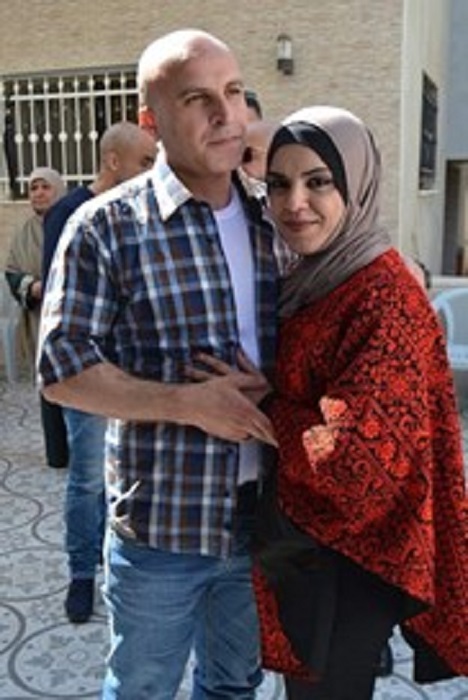
Building for the future
Hadi was hesitant and worried about their relationship and the long years that he still had to spend in jail. He was worried about the challenges that Shaza would encounter because of him. He decided he had to talk to her about his worries at the next visit. When he started to tell her his concerns, however, Shaza replied firmly and with her eyes bright, “It’s not allowed to discuss our relationship anymore. We will stand up to this together.”
Shaza spent the next ten years saving Hadi’s salary and her own money. She turned promises into reality. She took daily rides looking for the right piece of land to build their dream house on. She found it and moved forward.
“I didn’t witness these days,” says Hadi. “She sent me pictures of every step she took, but only five pictures are allowed for every prisoner per visit. She kept me informed from the moment she bought the land until the house was built. We discussed every detail from the colors of the paint to the number of the rooms to the choice of the furniture. I never doubted that we would live together in our house and make our own family.”
The end of jail and the beginning of life together
The time passed and the jail sentence came to an end. Hadi was released and could walk away from that place that had deprived him of his life and the places that he loved. When he came out of prison scores of people were there to celebrate with him the long-awaited moment.
Hadi and Shaza said nothing when their eyes met. He whispered to her, “I’ll never leave you alone again,” and they headed to Tulkarm to be welcomed at a grand reception. Two days later, Hadi went to see their house. He was adapting to his return to life slowly and it took him some time to understand his new reality. “I didn’t believe that I was finally free and I would be able to have a family just like anyone else.”
Hadi and Shaza were married on June 15, 2020.
Hadi was one of more than 4,000 Palestinian prisoners at any given time living behind bars and deprived of their basic needs. The right of freedom is given to all human beings, but Israel has taken it away from Palestinians, forcing them to live tragedies of separation inside their homeland. Thousands of stories of pain, suffering and sacrifice go along with this number. Palestinian prisoners are not mere numbers, they are people who desire to live with their families and be free.

